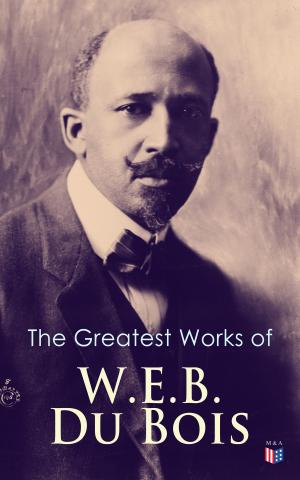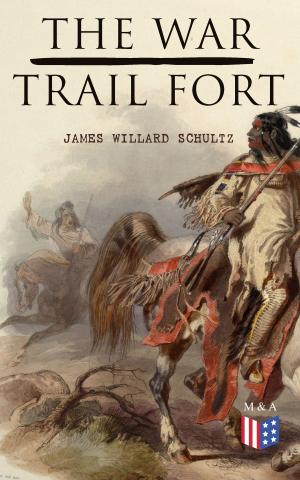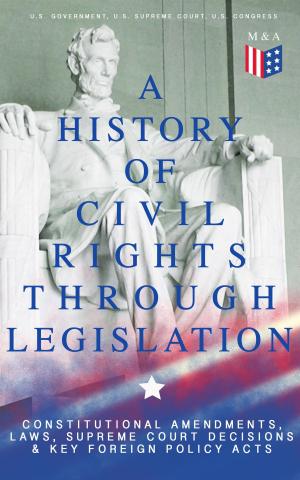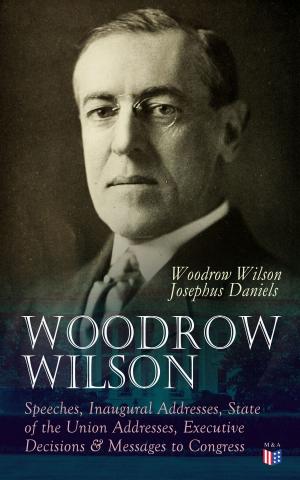We the People: The Foundation & Evolution of the U.S. Constitution
The Formation of the Constitution, Debates of the Constitutional Convention of 1787, Constitutional Amendment Process & Actions by the U.S. Congress, Biographies of the Founding Fathers
Nonfiction, History, Americas, United States, Revolutionary Period (1775-1800), Social & Cultural Studies, Political Science| Author: | James Madison, Helen M. Campbell, U.S. Congress, Center for Legislative Archives | ISBN: | 9788026880585 |
| Publisher: | Madison & Adams Press | Publication: | January 2, 2018 |
| Imprint: | Language: | English |
| Author: | James Madison, Helen M. Campbell, U.S. Congress, Center for Legislative Archives |
| ISBN: | 9788026880585 |
| Publisher: | Madison & Adams Press |
| Publication: | January 2, 2018 |
| Imprint: | |
| Language: | English |
"We the People of the United States, in Order to form a more perfect Union, establish Justice, ensure domestic Tranquility, provide for the common defence, promote the general Welfare, and secure the Blessings of Liberty to ourselves and our Posterity, do ordain and establish this Constitution for the United States of America." — Preamble to the Constitution The Constitution of the United States of America is the supreme law of the United States. Empowered with the sovereign authority of the people by the framers and the consent of the legislatures of the states, it is the source of all government powers, and also provides important limitations on the government that protect the fundamental rights of United States citizens. The Constitution acted like a colossal merger, uniting a group of states with different interests, laws, and cultures. Under America's first national government, the Articles of Confederation, the states acted together only for specific purposes. The Constitution united its citizens as members of a whole, vesting the power of the union in the people. Without it, the American Experiment might have ended as quickly as it had begun. James Madison introduced 12 amendments to the First Congress in 1789. Ten of these would go on to become what we now consider to be the Bill of Rights. One was never passed, while another dealing with Congressional salaries was not ratified until 1992, when it became the 27th Amendment. Based on the Virginia Declaration of Rights, the English Bill of Rights, the writings of the Enlightenment, and the rights defined in the Magna Carta, the Bill of Rights contains rights that many today consider to be fundamental to America. Contents: The Journal of the Debates in the Convention Which Framed the Constitution of the United States Constitutional Amendment Process Measures Proposed to Amend the Constitution Congress Creates the Bill of Rights Constitution Amendments Biographies of the Founding Fathers
"We the People of the United States, in Order to form a more perfect Union, establish Justice, ensure domestic Tranquility, provide for the common defence, promote the general Welfare, and secure the Blessings of Liberty to ourselves and our Posterity, do ordain and establish this Constitution for the United States of America." — Preamble to the Constitution The Constitution of the United States of America is the supreme law of the United States. Empowered with the sovereign authority of the people by the framers and the consent of the legislatures of the states, it is the source of all government powers, and also provides important limitations on the government that protect the fundamental rights of United States citizens. The Constitution acted like a colossal merger, uniting a group of states with different interests, laws, and cultures. Under America's first national government, the Articles of Confederation, the states acted together only for specific purposes. The Constitution united its citizens as members of a whole, vesting the power of the union in the people. Without it, the American Experiment might have ended as quickly as it had begun. James Madison introduced 12 amendments to the First Congress in 1789. Ten of these would go on to become what we now consider to be the Bill of Rights. One was never passed, while another dealing with Congressional salaries was not ratified until 1992, when it became the 27th Amendment. Based on the Virginia Declaration of Rights, the English Bill of Rights, the writings of the Enlightenment, and the rights defined in the Magna Carta, the Bill of Rights contains rights that many today consider to be fundamental to America. Contents: The Journal of the Debates in the Convention Which Framed the Constitution of the United States Constitutional Amendment Process Measures Proposed to Amend the Constitution Congress Creates the Bill of Rights Constitution Amendments Biographies of the Founding Fathers















